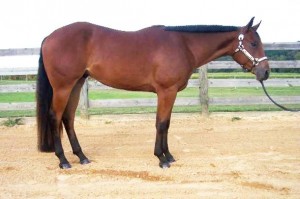 They say that it is easier for a woman to find the perfect husband than it is to find the perfect swimsuit. And I would say that’s about how hard it is to find the perfect horse. When you’re thinking of getting a horse, you need to know how important a “good fit” really is. So I’m sharing a few tips here to help a less experienced person find a horse that will be perfect for them.
They say that it is easier for a woman to find the perfect husband than it is to find the perfect swimsuit. And I would say that’s about how hard it is to find the perfect horse. When you’re thinking of getting a horse, you need to know how important a “good fit” really is. So I’m sharing a few tips here to help a less experienced person find a horse that will be perfect for them.
A common scenario in the horse world is that a teenage girl wants a horse, so her parents go out and buy her the first one they find that they can afford. The girl is in love with the horse, but after a few unsuccessful rides that may involve getting bucked off or run away with, the girl is too afraid to ride the horse and the parents are upset they have wasted their money, the horse gets sold at the next auction and possibly shipped off to a slaughter plant. In most cases, the horse is not a “killer horse”, it simply did not fit with its owner, and so the sad scenario plays out to the disadvantage of everyone involved. A horse’s potential and a girl’s dreams are both at an end.
What difference could have been made if that same girl or her parents had taken the time to familiarize themselves with a local trainer, asked for some advice in finding a good horse, and scheduled some lessons in which the girl and horse both learn how to form a good foundation for their relationship? A whole world of difference could have been made.
First of all, when horse shopping, do not go searching with your emotions. Educate yourself enough first about horses to know if the equine you’re looking at is lemon-flavored. Study the basics of good conformation, and when you’re looking at online horse classifieds photos, rule out the ones that have weak pasterns, mutton withers, ewe necks, or glaring faults. Know how to read internet ads, and if not enough information is given, email the owner with this list of questions:
1. How long have you owned this horse? (If less than a year, beware–the seller may be a dealer who buys auction horses and re-sells them with no improvements or knowledge of what kind of horse they really are.)
2. Does this horse have any known bad habits? (Hard to catch, does he kick, bite, rear, run away with a rider, buck, hard to trim or shoe or bathe or trailer-load, have vices such as cribbing, wind-sucking, stall-weaving, pacing, etc.?) These are all problems that a seller will be reluctant to share and will not likely disclose unless you ask, so do inquire about each one.
3. How much do you know about this horse’s training? (How old was it when it was trained to ride? Do you personally know the trainer and can recommend the horse as being trained well? Does the horse have good ground manners, are there areas he still needs work on?)
4. Do you have the registration papers for this horse and are they up-to-date naming you as the seller? (Many horses are advertised as registered, but the papers have been lost or never followed the horse to its new owner, etc.–so be aware the horse may not have current papers and be worth only a third of the price being asked for him.)
5. How is the horse currently being used? (Was the horse ridden regularly this past year? What potential disciplines do you see for this horse, and is there any reason why he would not be a perfect riding horse? Would you consider this horse to be a good match for my level of rider?)
6. Are there any past or present injuries or illnesses? Any scars (this might be important to you if you plan to show the horse), and are there any special supplements that are required for his health? What types of feed is the horse used to? (Some horses are “just fine” if fed a full menu of costly supplements, but they fall apart and are unsound without them, so do ask!)
If the horse passes the above test with flying colors, then you need to set up a time to go look at the horse. Never buy a horse sight-unseen, that is beyond foolish. If you are inexperienced, take along someone who is highly experienced. The horse should be ridden by its owner while you and your trainer observe, and then you or the trainer should ride the horse. Your goal in this is to establish that the horse knows all his cues, is suitable for the type of riding you intend for him, and there are no problems with the horse when ridden in all gaits and directions.
After that, a thorough veterinarian check (which the owner agrees to, you shedule and pay for) is recommended to ensure that the horse is in perfect health and condition for the type of riding you want to do with him. And finally, after all the above considerations, you are ready to actually purchase the horse.
The shopping process might be daunting to some, but for others it is a joy. There is nothing so exciting for a true horse person than to go looking for your best equine friend. Just don’t go rushing in with your eyes closed and skip these important steps….you might wind up in the emergency room.

